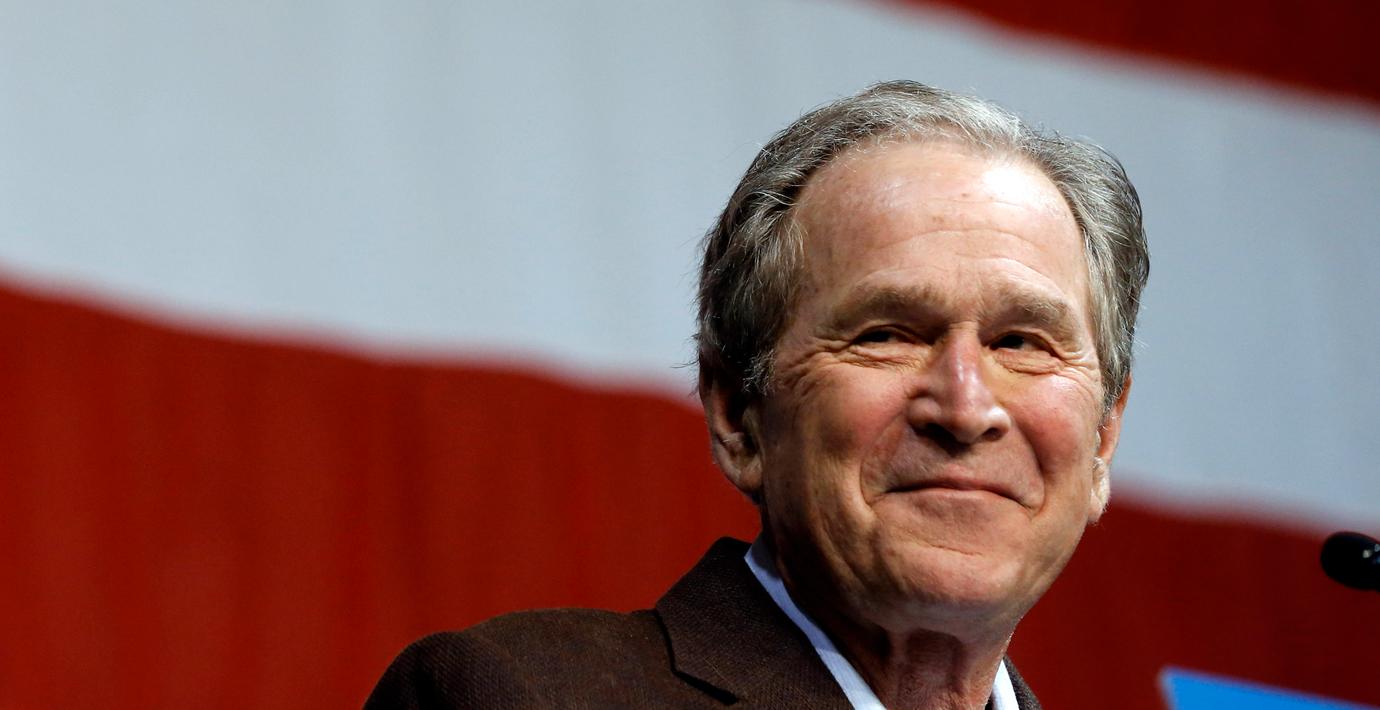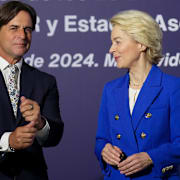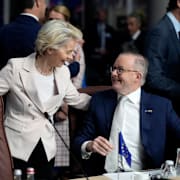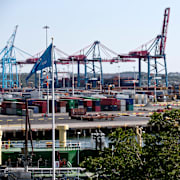Wikipedia (en)
George Walker Bush (born July 6, 1946) is an American politician who served as the 43rd president of the United States from 2001 to 2009. He was also the 46th governor of Texas from 1995 to 2000.
Bush was born on July 6, 1946, in New Haven, Connecticut. After graduating from Yale University in 1968 and Harvard Business School in 1975, he worked in the oil industry. Bush married Laura Welch in 1977 and unsuccessfully ran for the House of Representatives shortly thereafter. He later co-owned the Texas Rangers baseball team before defeating Ann Richards in the 1994 Texas gubernatorial election. Bush was elected president in 2000 when he defeated Democratic incumbent vice president Al Gore after a close and controversial win that involved a stopped recount in Florida. He became the fourth person to be elected president while receiving fewer popular votes than his opponent.
Bush is a member of a prominent political family and is the eldest son of Barbara and George H. W. Bush, the 41st president of the United States. He is only the second president to assume the nation's highest office after his father, following the footsteps of John Adams and his son, John Quincy Adams. His brother, Jeb Bush, a former Governor of Florida, was a candidate for the Republican presidential nomination in the 2016 presidential election. His paternal grandfather, Prescott Bush, was a United States Senator from Connecticut.
The September 11 terrorist attacks occurred eight months into Bush's first term as president. Bush responded with what became known as the Bush Doctrine: launching a "War on Terror", an international military campaign that included the war in Afghanistan in 2001 and the Iraq War in 2003. He signed into law broad tax cuts, the Patriot Act, the No Child Left Behind Act, the Partial-Birth Abortion Ban Act, Medicare prescription drug benefits for seniors, and funding for the AIDS relief program known as PEPFAR. His tenure included national debates on immigration, Social Security, electronic surveillance, and torture.
In the 2004 presidential race, Bush defeated Democratic Senator John Kerry in another relatively close election. After his re-election, Bush received increasingly heated criticism from across the political spectrum for his handling of the Iraq War, Hurricane Katrina, and other challenges. Amid this criticism, the Democratic Party regained control of Congress in the 2006 elections. In December 2007, the United States entered its longest post-World War II recession, often referred to as the "Great Recession", prompting the Bush administration to obtain congressional passage of multiple economic programs intended to preserve the country's financial system.
Nationally, Bush was both one of the most popular and unpopular presidents in history, having received the highest recorded presidential approval ratings in the wake of the September 11 attacks, as well as one of the lowest approval ratings during the 2008 financial crisis. Bush left office in 2009 and returned to Texas, where he purchased a home in Dallas. In 2010, he published his memoir, Decision Points. His presidential library was opened in 2013. His presidency has been ranked as well below average in historians' polls that were published in the late 2000s and 2010s, consistently ranking in the 2nd sextile, while his favorability ratings with the public have increased dramatically since leaving office.




